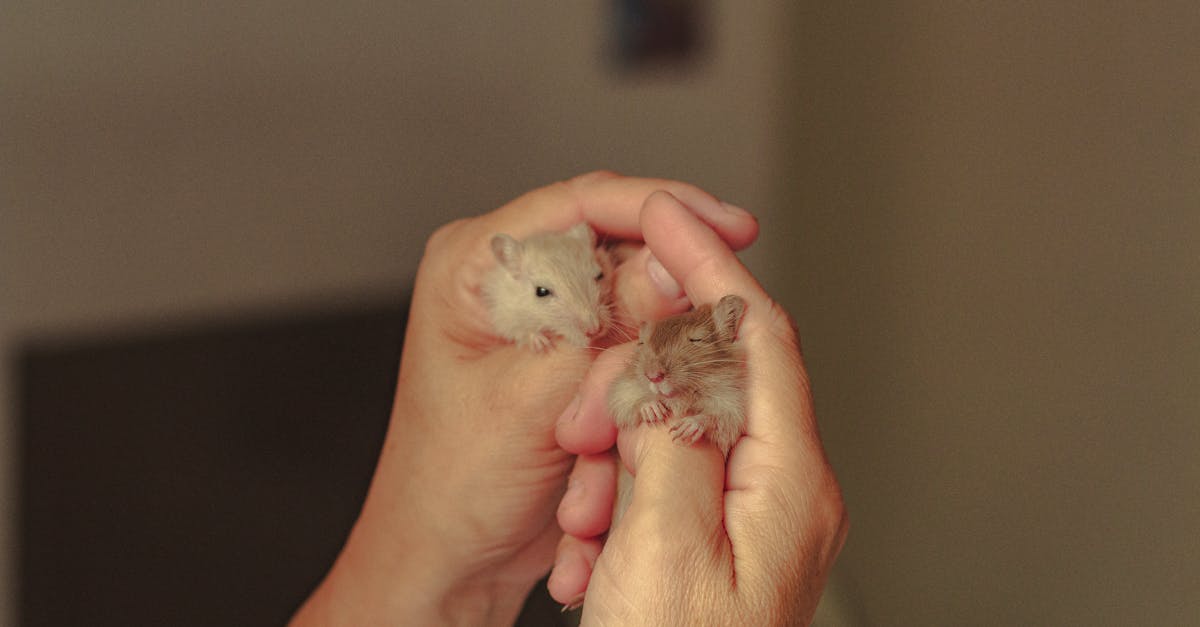Choosing the Best Pet for Your Kids
Introduction
Selecting the right pet for your kids can be a delightful yet daunting endeavor. Pets not only offer companionship but also teach children about responsibility and empathy. However, it's crucial to consider various factors such as the child's age, the family's living situation, and the pet's care requirements. With a myriad of options available, finding the ideal pet that suits your family's lifestyle is key. From furry friends to feathered companions, each type of pet comes with its unique set of needs and benefits. In this guide, we will explore some popular pet choices and help you determine which might be the best fit for your children.

MART PRODUCTION/Pexels
Advertisement
Small Mammals: Hamsters and Guinea Pigs
Teeming with energy and brimming with personality, small mammals like hamsters and guinea pigs can be excellent starter pets for kids. These creatures are typically low maintenance, requiring simple living setups with proper bedding, food, and water. Hamsters are nocturnal and provide great entertainment as they scuttle around their habitat. Guinea pigs are a bit larger and more social, often enjoying quality time interacting with their human caretakers. Both pets can be taught to enjoy gentle handling, making them suitable for slightly older children who appreciate delicate interactions. Their compact size makes them a convenient choice for families who live in smaller spaces.

Lucas Pezeta/Pexels
Advertisement
Cats: Playful Purrs and Independence
For families seeking a pet with independence, cats are a superb choice. Cats combine self-reliance with affection, often taking care of their grooming while still enjoying playtime and affection from humans. While some cats are aloof, many are happy to curl up on a lap or behind a laptop screen. With a litter box, scratching post, and regular feeding, their upkeep is relatively straightforward. Cats can adapt well to both apartments and homes, making them versatile companions. When choosing a cat for your child, consider the breed's temperament and whether it's from a family-friendly lineage. Adopting from animal shelters is also a noble way to bring joy into both a pet's and a child's life.
Advertisement
Dogs: Loyal Companions and the Roots of Responsibility
Dogs are often synonymous with companionship and unconditional love, and their loyal nature makes them a family favorite. Unlike cats, dogs require more active involvement, including walks, training, and grooming, providing children with valuable lessons in responsibility. The variety of breeds allows families to choose a dog that fits their living environment and energy level. While a larger yard is an advantage for active breeds, many smaller breeds adapt well to apartment living with the right exercise. Dogs also encourage outdoor activities, an added bonus to promote physical health within the family. Before bringing home a dog, consider the time and energy your family can realistically offer to ensure a harmonious existence.
Advertisement
Fish: Beauties in the Aquatic World
For a minimalist approach to pet ownership, fish bring beauty and tranquility to a household. Aquariums can serve as a peaceful focal point in a home, and caring for fish teaches children about the importance of routine and maintenance. While they don't require cuddles, fish enjoy environments with clean tanks, appropriate temperatures, and regular feeding. Families can start with easy-care species like goldfish or guppies and gradually progress to more complex marine setups. Fish present opportunities for setting up creative tank decorations and exploring aquatic plant life, providing educational insights into underwater ecosystems. However, it's essential to remember that maintaining a healthy aquarium requires diligence and regular upkeep.
Advertisement
Birds: Chirpy Companions in the Sky
Birds offer a mix of independence and interaction, with many species keen to engage in play and mimic sounds. From the small and personable budgerigar (parakeet) to the vibrant and social cockatiel, birds can make lively and interactive pets. They require cages with enough space to stretch their wings, and their diet should consist of seeds, pellets, fruits, and vegetables. Children learn to respect boundaries when handling birds, essential in building a bond based on trust and mutual understanding. Songbirds add a musical dimension to your household, offering a cheerful ambiance. Prospective bird owners should remember that these feathered friends are intelligent and may need mental stimulation through toys and puzzles.
Advertisement
Reptiles: Exotic Adventures in Pet Ownership
For those interested in unique pets, reptiles like turtles, geckos, and bearded dragons present a fascinating world of exotic companionship. Reptiles require terrariums that replicate their natural environments, needing precise temperature, humidity, and lighting conditions. Observing and caring for reptiles can be educational, offering children insight into different habitats and species. While not suitable for cuddling, reptiles still form bonds through consistent interaction and gentle handling. The low allergenic nature of reptiles can make them an attractive option for families with allergies. Prospective reptile owners should be prepared to make an investment in proper habitats and care equipment.
Advertisement
Rabbits: Furry Friends with Gentle Demeanors
Rabbits combine the best of many worlds with their soft fur, gentle nature, and ability to interact affectionately with humans. They can thrive indoors or outdoors in suitable hutches and require a diet of hay, pellets, and fresh vegetables. Rabbits enjoy company and can form strong bonds when given regular interaction and handling. However, they also demand attention to their surroundings, ensuring they're safe and enriched. A rabbit's lifespan stretches beyond a decade, making them a long-term commitment. Families should consider the time and space to ensure rabbits remain happy and healthy, with opportunities to roam under supervision daily.
Advertisement
Considerations and Preparations: Setting Up for Success
Before introducing a pet into your family, there are several crucial factors to contemplate. Evaluate your family's lifestyle, taking into account space, time, and budget. Educate all family members about the potential pet, emphasizing the importance of commitment, responsibility, and safety. Ensure that the household is equipped with all necessary supplies, such as housing, food, bedding, and cleaning materials. Discuss and designate tasks among family members to ensure no aspect of pet care is overlooked. Incorporating this into family life can help promote cooperation, accountability, and cohesion, strengthening family bonds through shared responsibility.
Advertisement
Summary and Conclusion
Choosing the right pet for your kids is an enriching journey that melds companionship and responsibility. Each type of pet offers unique benefits and challenges, catering to an array of family preferences and lifestyles. Whether selecting a playful pup, a mysterious fish, or a cuddly rabbit, a holistic approach requires research, preparation, and a commitment to nurturing your new family member. Encouraging children to actively participate in pet care fosters invaluable life skills like empathy, patience, and respect for animals. With informed choices and dedication, pets will become beloved members of your family, offering years of joy and companionship.
Advertisement


